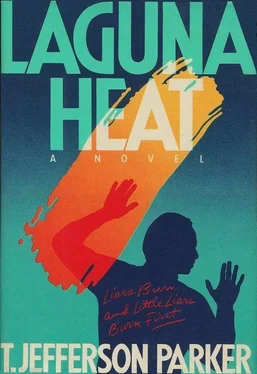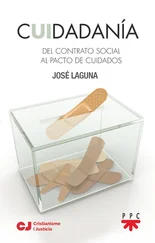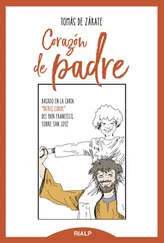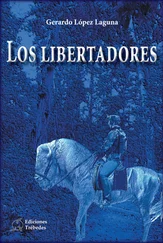Louise, he thought. Was the reality love, or the end of love?
Just before midnight he stood in front of Hope Creeley’s Spanish-style home, fingering in his pocket the key he had found in her kitchen drawer. After admonishing Cal gently, he brought it out and let them in.
Cal immediately followed his nose, cruising the hallway for smells, veering unexpectedly and for no apparent reason, stopping suddenly as if something in the air had commanded him to. Shephard took to the house also, wandering, meandering, looking but not knowing for what. Certain fragments found their way into the pockets of his coat: Hope Creeley’s address book, which contained Tim Algernon’s number as well as his father’s; an unopened telephone bill; a handful of matchbooks that had been decoratively placed in a brandy snifter; a shopping list written in a cramped, nervous hand.
Dimly, Shephard remembered a bedroom wall covered with framed mementos and photographs. On the second floor he found it, in the last of the three bedrooms.
While Cal sat attentively at his feet, Shephard regarded the framed history. Hope Creeley at high school graduation; in a newspaper photograph that showed her as a Red Cross worker; in a portrait taken as a young woman, standing in her wedding gown with the groom, pushing cake into each other’s mouths. She was a handsome, slight woman, with a plain but friendly face rimmed with light curls. There was something self-contained about her, Shephard thought. Even in the picture of her wedding day, he detected something remote and controlled in her smile. A smile of agreement, conformity, not mirth or abandon. The same smile Hope Creeley wore aboard a motor yacht where she stood on deck with two other couples.
The photograph was blurred by age. He recognized the couple to Creeley’s left: Mr. and Mrs. Wade Shephard. And the third man was familiar. Shephard closed his eyes and tried to dredge the man’s name from his memory. A handsome, outdoor-looking man, someone to whom life had been good. The face taunted, but remained anonymous.
Below the yacht picture was a shot of Hope Creeley and her husband standing in front of a tennis net, their racquets in their hands, a trophy at their feet. Embossed into the matte border in fine gold letters was the legend:
SURFSIDE MEMBERS TOURNAMENT, 1947
BURTON AND HOPE CREELEY
The same tournament Tim and Margaret Algernon had played in, he thought. Shephard removed the picture from the wall, examined it under the direct light in the center of the room, and replaced it. Cal yawned and wandered away. The photographs seemed to end around 1950, he noted, as if everything memorable in the woman’s life had been completed by then. He turned off the light and headed for the third story, wondering why it was such a bad year for Surfside tennis players.
He crossed the white expanse of the anteroom and stood beside the nightstand in the bedroom and noticed something for the first time. No wonder we missed it, he thought. White, like everything else in the room, it blended chameleonlike into the wall behind it. But one look at it explained why Tim Algernon had called twenty-four times instead of once.
Like a million other frustrated callers around the world, he had gotten the answering machine rather than his intended party.
Shephard sat down on the bed, turned the rewind switch, and waited for the tape to stop. It didn’t have far to go. Then he pushed the play button, lay back on the hard bed, and stared at the ceiling.
A man’s voice, calm and peaceful: “This is Reggie, Hope. Just called to say hello. Did you see the yellow rose by the hedge this morning?”
A woman’s voice, older, enthused, concerned: “It’s Dorothea again, Hope. Thank you so much for your contributions to the Society. I can’t wait to read it and I know the pictures will be a delight. Please come see us again soon. Bye now.”
Then, a deep voice that spoke slowly and deliberately:
“Hope, this is Tim. Sorry I missed you. We have to get together and talk, please. My number is 494-1318. Goodbye.”
The same voice: “Tim Algernon again. I hope you’re on vacation. Please call me as soon as you get in, it’s very important.”
The next caller listened to the message, waited, and said nothing. It took him five seconds to hang up. Shephard stopped the tape, rewound it, and listened to the empty five seconds again. The sound of cars on a fast street, and one horn honk.
Tim Algernon called again: “Tim Algernon, Hope. Call me as soon as you get this message. Promise?”
The first caller, still calm and peaceful: “I hope everything is okay there, dearest Hope. Perhaps we’ll have breakfast again? Toodles.” He hung up.
Then a long wait, traffic moving in the background again, and the distant peal of bells. The voice came fast and hurried: “Did you get my little package, Hope? I’ll bet it made your skin crawl, didn’t it? You don’t have to call me because I’ll be calling on you. No matter what you do.”
There was a pause while the traffic and bells continued in the garbled background. Then the voice continued: “Look to God, look to heaven, and look to hell, Hope. It’s so nice to be back in Laguna Beach. Hello, hello...” The caller hung up.
Shephard lurched up from the bed, rewound the last message, and played it back. Again the long pause, the cars and bells. The hurried, severe voice, speaking as if he had to get the call over with so he could get on to business.
Followed by Tim Algernon again: “Sorry for all the calls, Hope, but I’ve got something urgent to see you about. Please call me. If I could explain it in thirty seconds, I would. Again, it’s Tim Algernon, 494-1318.”
And Algernon again: “Hope, call me immediately. I think you may be in danger and I know that I am, too. Please call Tim. Hurry.”
Then a new voice, or rather, two of them. First a pert “Oh,” as if in mild surprise, then a pause, followed by a voice that Shepard recognized immediately: “Hello, Mrs. Creeley. We’re returning your confidential call of yesterday. Please call us anytime.”
Marla Collins and Bruce Harmon, he thought: confidential as hell.
Then the hurried voice again, this time sending a nervous chill up Shephard’s spine: “Poor Timmy, poor Tim. Haven’t you heard?” There was more traffic in the background before he hung up. It was the last call on the tape.
Shephard rewound again to the threatening message. He listened to it twice for the words, which he scribbled into his notebook as they were spoken, and once to count the bells ringing the time in the background.
There were seven.
“Good old Saint Cecilia’s,” he mumbled to Cal as he stood up from the bed. “She always tells us the time, doesn’t she, Cal? Even with all the traffic on Coast Highway.”
Shephard removed the tape in case some other interested party — Bruce Harmon, for instance — should want to hear it. With the first inklings of luck stirring inside him, he stood up. Cal was already asleep on the floor.
Little package, he thought. Little package. He wondered if it might be book-sized.
The inklings of luck were true. Not that any great amount of it was needed to pull out the nightstand drawer. But there was the Bible, nestled in the corner beside a bottle of nail polish and an unopened packet of cotton balls. The inside of the back cover bore a stamp more decorative and informative than the stamp on Algernon’s book, a fancy, cheerful filigree that read: Forest Avenue Books, Happy Reading. The book was not new. But he reasoned that the handwriting on the first page was. The ink was red and the familiar penmanship was ordered and skilled:
For the Lord your God is a devouring Fire,
Читать дальше












